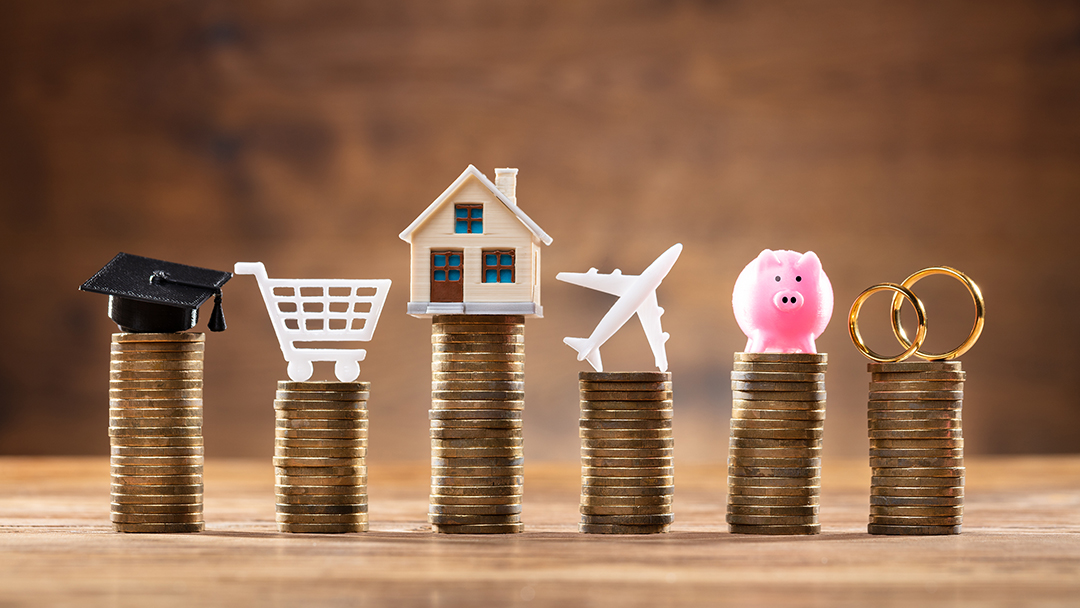Debt doesn’t have to be a dirty word. Sometimes you need to take on debt to reach a milestone in life like going to school or buying a house. For example, it’s often impossible for someone to buy a house without taking on a mortgage. It could be the largest debt you owe but a mortgage is the good kind of debt.
That’s right, good debt is actually a thing. I know it sounds like those two words don’t really belong together but sometimes they do. I’ll break it down for you.
Good Debt vs Bad Debt
Good debt
There are only a few things that are worth going into debt for. Good debt helps you generate income or increase your net worth. Anything that will increase in value over time is also worth considering going into debt for.
For example, let’s say you borrow $100,000 buy a house—a very tiny house nowhere near Vancouver. Historically, you can assume that over time the house might be worth $150,000. So, one day, when you sell this very, very tiny house for $150,000, you’ll make enough to pay back the borrowed amount and still have $50,000 left for yourself.
Bad Debt
Bad debt is any debt that will depreciate your net worth.
Basically, what that means is:
- If you don’t have the cash for it
- If it doesn’t go up in value
- If it doesn’t generate income
You shouldn’t borrow money to buy it.
For example, there is a new gaming system or new iPhone launching and you want to buy it on the first day. Unfortunately, you don’t have enough money in your bank account so you put it on your credit card.
Did you have enough cash for it? No. Will it increase in value over time? Nope. Will it generate any income? Probably not. You’ve just taken on bad debt.
To help you navigate through the world of good debt or bad debt, I’ll break it down even further.
Types of good debt
Student Loans
Investing in your education can increase your future earning potential. Traditionally having a post-secondary education gives you an advantage when looking for a job. It can also result in a higher salary. This debt will likely pay for itself in a few years’ time and is worth the investment.
Buying a home
Real estate is the most common form of “good debt.” The main idea is that you’ll take on a mortgage, buy a home, live in it for a period of time and then eventually sell it for a profit. You can also use it to generate income if you rent it out or take on boarders.
Credit cards can be good…and bad.
A credit card can help you if you use it properly. Especially if you need to start building a credit history or rebuilding your credit. They can also help you pay for things that require a credit card, like online purchases or car rentals.
So they aren’t necessarily a bad thing to have. But they can also be an easy way to go accumulate bad debt and get you into financial trouble if not managed carefully. Further risk can come when multiple credit cards are used. Don’t worry though, there are a few ways to help organize your repayments like a consolidation loan.
Types of bad debt
Payday loans or advances
Yes, sometimes you might need your paycheque early but these kinds of loans have unrealistic interest rates hidden in the fine print. And as a result, they can create a scary cycle that’ll hold you back financially. In fact, you could end up paying up to 300% more interest than you would on a regular loan.
Many financial institutions offer better short-term lending options. They can help you on the path to financial well-being through a realistic savings plan so that a payday loan or advance is not needed.
Retail or store credit plans
This is the “buy now, pay later” philosophy. This is when you shop at a department store and they offer a 10% to 15% discount on your purchase if you open up a credit card. It usually comes with 0% interest on your purchase for a set amount of time.
It might be alluring, especially if you’re buying something as expensive as a washer and dryer, but retail credit cards or plans are, on average, 5% to 7% higher than traditional credit cards. In most cases, the 25% interest rate on the card will cost you far more than that 15% in savings.
How can you avoid bad debt?
- Create a realistic budget and commit to following it. Getting a clear picture of how much you earn in relation to how much you should spend is key.
- Establish a savings habit with clear and concise goals. This will help achieve what’s important to you.
- Meet with your financial planner or relationship manager to have a good conversation around your current financial state, your goals and risk tolerance to help you to set up a plan that’s realistic and achievable. I always like to follow the advice of Warren Buffet who said, “Do not save what is left after spending, but spend what is left after saving”.
- Don’t get starry-eyed when you are applying for loans. Just because you were approved for $20,000, doesn’t mean you need $20,000. Try to be realistic with what you can actually afford in terms of your monthly expenses.
Let’s chat
We can help you create a realistic plan to pay down your debt. Give us a shout.



